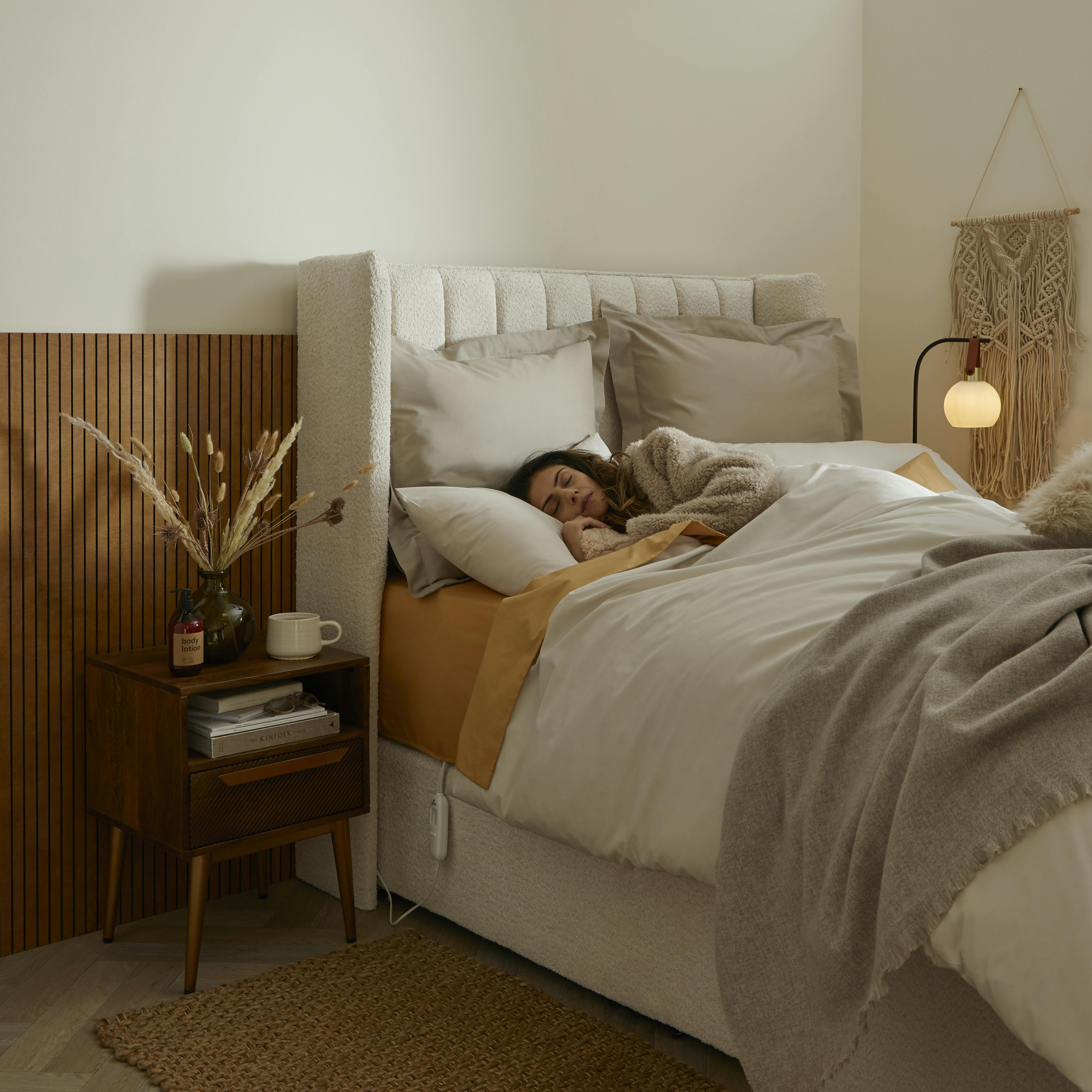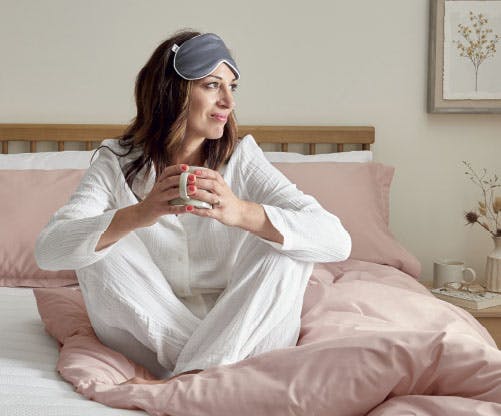How to get a good night's sleep
Slipping into a sound sleep is far easier said than done; that’s why so many of us (7 out of 10, in fact) admit to not getting enough sleep. Plus, it’s not always easy to find the right information among the sleep superstitions and unachievable advice. So, if you’ve always wondered what really makes a difference and what’s just a myth when it comes to nodding off, look no further. We asked experts at The Sleep Charity to tell us once and for all: how do you get a good night’s sleep? Here's what they told us...
Tip 1: Chill out (literally)
Love cosy, toasty bedtimes? Evidence actually suggests that the best temperature for sleeping is somewhere between 16-19 degrees, meaning a cooler (but not cold) room creates a deeper sleep. Why? Our bodies naturally dip slightly in temperature while we snooze, so keeping things cool before bed can signal to our brains it’s time to relax.
How to chill out:
Take a warm shower or bath before bed. Yep, warm. While you might be tempted to use cold water to cool down (makes sense, right?), warm water actually helps to drop your body temp by increasing blood flow. Plus, bath salts can help relax us, too. If you don’t fancy getting wet, invest in an airy mattress topper or a duvet with a lighter tog to help keep you cool.
Tip 2: Banish the blue light
Let’s be honest, we all know not to use our phones or tablets before bed by now – but about 95% of us are still doing it, according to recent studies. So, why is it bad for bedtime? More than any other kind of light, blue light suppresses the sleep hormone melatonin and stops our brains from effectively preparing us for sleep.
How to banish the blue light:
Try to ditch the tech two hours before hitting the hay (but if you can’t manage two hours, then even 30 minutes is helpful). Instead of scrolling through your feed or flicking on the telly, turn to reading a book, journaling or try some meditation. And if you’re struggling to ditch your phone, you can create a chilled playlist to put on before bed, or download an app that’s specially designed to help relaxation, like BetterSleep or Headspace.
Tip 3: Minimise midnight snacks
Do you know there’s no actual evidence to suggest that eating cheese before bed gives you nightmares? In fact, things like chocolate, booze and caffeinated drinks (yes, even tea) can have a far worse effect on your sleep.
How to minimise midnight snacks:
If you’re feeling peckish before bed, lighter snacks are the way to go. Try things like nuts, plain yoghurt, fruit (particularly bananas) and yep, even cheese, instead. And it’s always better to avoid eating too close to bedtime - particularly big meals (like dinner) or anything spicy.
Tip 4: Your bed is just for sleep (ahem, mostly…)
Separating sleep can be difficult, particularly if you’re working from home or living in a smaller space. But it’s better for your brain to keep your bedroom - or at least your bed - as a space that’s specifically made for sleep. So try to avoid watching TV while you’re tucked in, and no more staying under the duvet while you answer those first few emails in the morning.
How to create a dreamy sleep space:
Lighting candles, playing calming music and dimming the lights when you’re pottering around your bedroom will help your brain start to create an association with sleep whenever you’re in there, predisposing you to a relaxing snooze.
Tip 5: Get into a routine
Do the same thing over and over again and eventually it becomes a habit, right? The same is true for sleep. Doing the same things in the same order each night sends signals to your brain that it’s time to sleep, helping to calm your mind (because it’s not worrying about making any decisions) and reduce late-night stress and anxiety. You know, the kind that keeps you awake.
How to get into a routine:
Try to go to bed at a similar time each night, and start your pre-sleep routine about half an hour before. Wash your face and slip into your PJs or listen to a relaxing podcast while having a warm shower – whatever you do to relax, try to do it in the same order each night. And if you’re a yoga fan, doing your stretches in the evening rather than when you wake up could help you get a deeper, more replenishing sleep, too.
So there you have it: five tips to help you get a better night’s sleep. From cutting down on snacking to discovering a new podcast or sleep story (they’re for grown-ups, too - who knew?), the best thing about these simple steps is that they’re easy to start straight away. Time to put your PJs on? We thought so, too.



